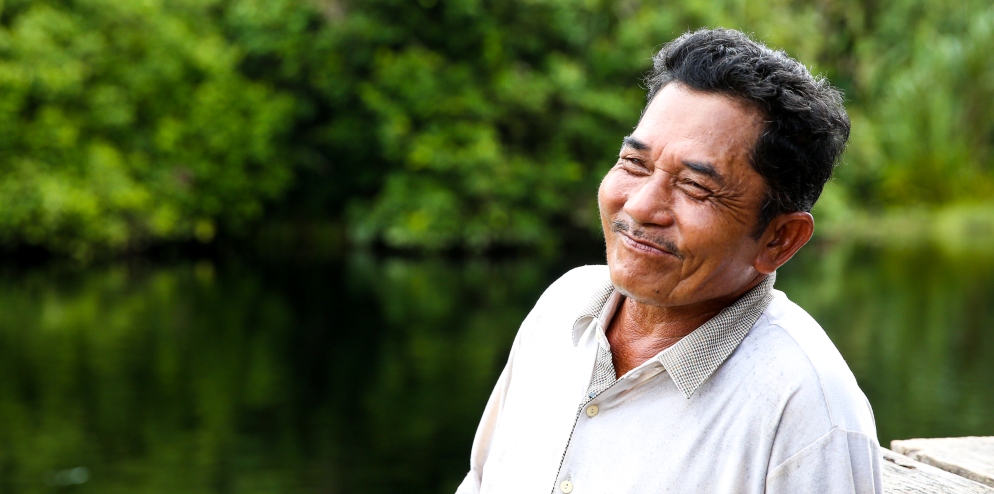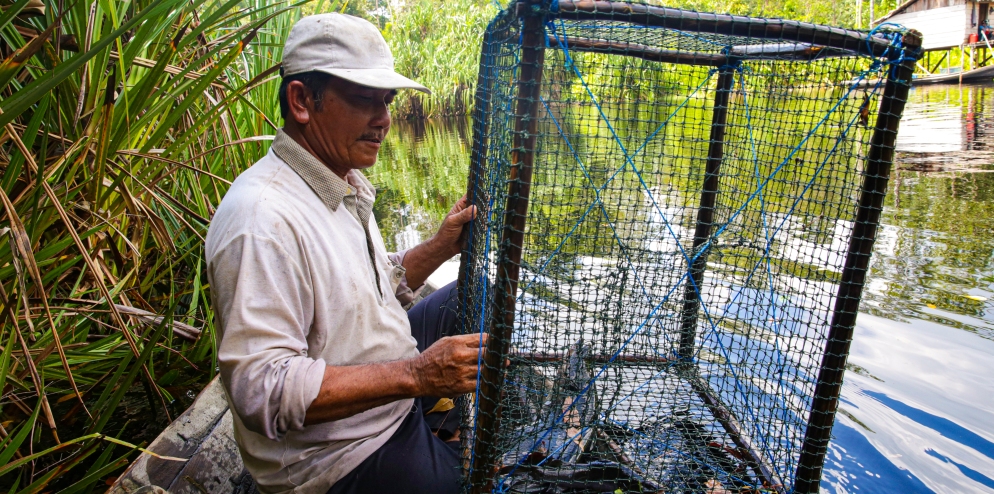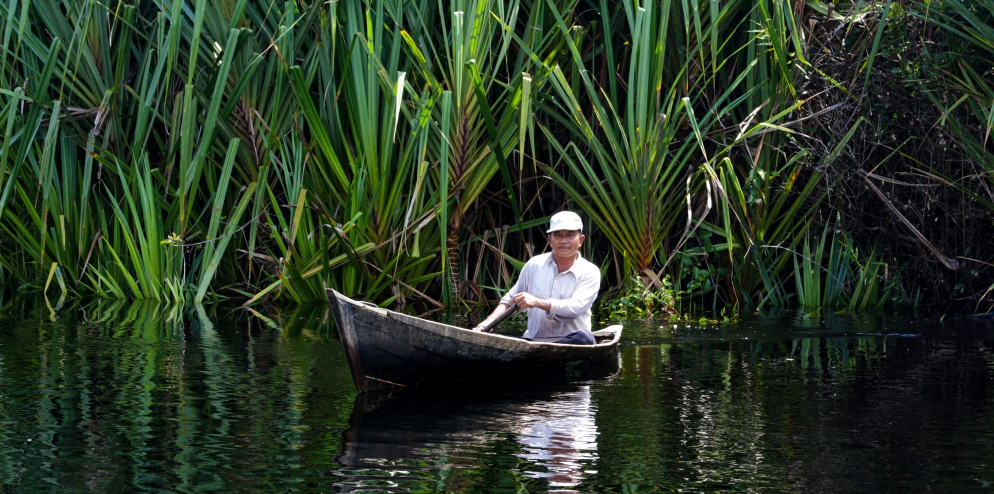August 27, 2019
Despite being 56 years old, Bachtiar’s enthusiasm to go to the river in the Riau Ecosystem Restoration (RER) area in Kampar Peninsula to catch fish remains unwavering.
Prior to becoming a fisherman, Bachtiar had been part of the rampant illegal logging activities that happened in Riau from 1980 to 2006. In the 80s, Bachtiar even constructed some of the canals in the forest, used by illegal loggers at the time to transport stolen wood to neighbouring countries.
“Then, when some of my friends were arrested by the police in the early 2000s, I was scared. I didn’t want to go to jail, so I decided to stop illegal logging,” he said.

Bachtiar turned to fishing for his livelihood instead and joined the Serkap Jaya Lestari fishermen’s group, which began collaborating with RER in 2016.
Before the RER was established, local fisherman who had traditionally fished on the Serkap River – which runs through the RER concessions areas – had been known to use unsustainable fishing practices, such as poison or electro-fishing, posing risks to healthy aquatic life in the river. Similarly, to establish easier access to the river, fisherman sometimes burned the vegetation on the riverside, causing forest degradation and damaging natural ecosystem.
“RER began working with Serkap Jaya Lestari since 2016. We educated them about the dangers of using poison to kill and catch fish, as this will have a direct impact on declining fish populations,” said Edy, RER Manager for Kampar Peninsula.
These days, unsustainable fishing practices are no longer justified, and the RER team also helps to secure the river areas from people who are not part of the Serkap Jaya Lestari group, and prevent them from secretly accessing the Serkap river and taking fish from it, he said.

Currently, Bachtiar enjoys bountiful catches, with various fish species ranging from Tapah to Kelabau and Baung entering his fish traps regularly.
Bachtiar received these traps from RER, who has provided the Serkap Jaya Lestari Group with 360kg of fishing nets and 11 speedboat engines in support of their fishing activities since 2017.
Bachtiar recalls his biggest catch was in November 2018, when he managed to catch more than 700kg of fish and earn up to IDR 42 million in that month.
“I still remember that the rainy season had just passed and the water levels were dropping. I caught 240kg of Selais, Bujuk and Sepotang, 230kg of Tapah and 240kg of Gabus.
“Selais, Bujuk and Sepotang will usually have to be smoked immediately and sold as dry fish, because these fish species tend to die faster before they can be brought to the market for sale. Smoked fish can last a year or more,” Bachtiar said.

At the market, Bachtiar usually sells his fish directly to customers without the need for middlemen, in order to get higher profits. Depending on the type of fish, Bachtiar makes between IDR 80,000 to IDR 200,000 per kilogram of fish sold.
Bachtiar spends some of the money he makes to support his wife and three children who are still schooling. He saves the rest to ensure there is enough for his children to complete their education should he and his wife decide to retire.
“At present, RER plans to continue assisting the fishermen in improving their livelihoods, which is evident from the signing of a new memorandum of understanding with them in February 2019 to strengthen collaboration,” Edy said.